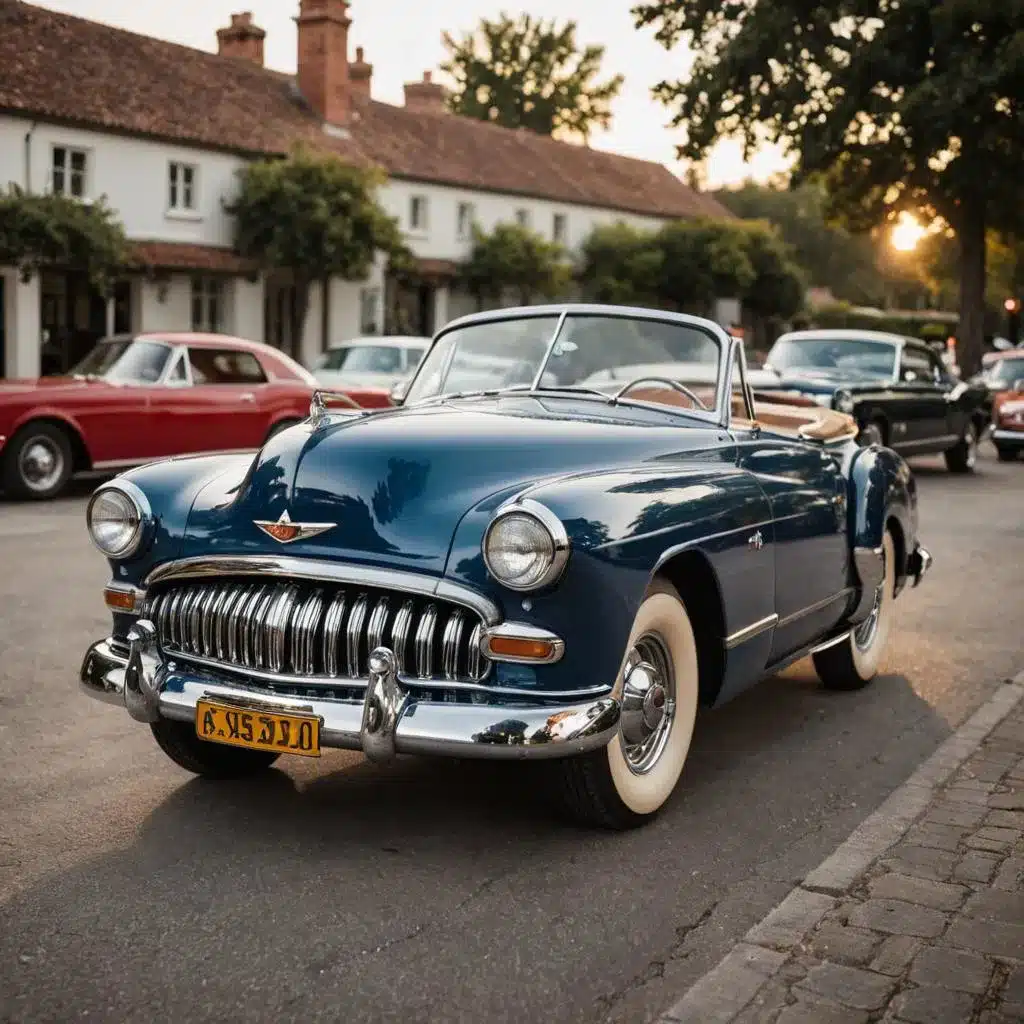Table of Contents
In an era dominated by electric vehicles and sleek, tech-laden sedans, the sight of a classic car rolling through a bustling city street is a showstopper. The gleaming chrome, unique silhouettes, and vintage appeal create an unmistakable aura of charm and sophistication. What may come as a surprise, however, is that classic cars are not just relics of the past. They are experiencing a renaissance, becoming increasingly popular in urban environments for reasons that blend nostalgia, craftsmanship, and individuality.
A Nostalgic Escape in a Modern Landscape
For many city dwellers, classic cars offer a welcome escape from the relentless pace of modern life. They represent an era when things were simpler, slower, and more deliberate. Driving a vintage vehicle amidst the chaos of a metropolitan setting can feel like reclaiming a piece of history and turning heads while doing so.
This surge in popularity is rooted in a collective yearning for the past, especially in cities where change happens at lightning speed. Classic cars serve as moving reminders of timeless beauty, contrasting sharply with the sleek but uniform designs of modern vehicles.
The Ultimate Status Symbol
In a world where luxury SUVs and hypercars dominate urban streets, a classic car stands out as the ultimate status symbol. These vehicles, with their rare designs and storied histories, carry an exclusivity that even the most expensive new car cannot replicate.
Owning a vintage car in a city signals not just wealth, but also an appreciation for artistry, history, and individuality. It shows that the owner values legacy over the fleeting trends of the present. For this reason, cities like New York, Los Angeles, and Miami have seen a sharp rise in the number of vintage cars cruising their streets or parked in private collections.
A Celebration of Craftsmanship
Classic cars are a testament to craftsmanship. Every detail, from hand-stitched leather interiors to custom wood accents, reflects the meticulous work of artisans who approached carmaking as an art form. In today’s world of automated production lines, this level of artistry is increasingly rare, making vintage cars even more desirable.
For urbanites, owning a classic car is not just about driving—it’s about appreciating a piece of history that has stood the test of time. Restoring and maintaining such vehicles is also becoming more accessible, thanks to specialized restoration shops and companies dedicated to reviving iconic models.
Vintage Meets Urban Sustainability
Interestingly, classic cars are finding a niche in the growing trend of sustainable urban living. Many enthusiasts are investing in electric retrofits, combining the aesthetic appeal of vintage vehicles with the environmental benefits of electric power.
This modern twist allows classic cars to thrive in cities with strict emissions regulations while attracting a new generation of eco-conscious drivers. Conversions not only extend the life of these vehicles but also ensure they remain relevant in an era defined by sustainability.
The Role of Classic Car Communities
The rising popularity of vintage vehicles in cities can also be attributed to thriving communities of enthusiasts. Car clubs, pop-up exhibitions, and meetups have created a strong network where owners can share their passion and showcase their prized possessions.
These gatherings often take place in urban hubs, drawing attention to the unique blend of vintage charm and modern city life. Social media platforms have amplified this phenomenon, making it easier for people to connect, trade vehicles, and celebrate their shared love for classic cars.
Practicality in Urban Spaces
While cities are known for limited parking and heavy traffic, classic cars surprisingly hold their own. Many vintage vehicles are compact by today’s standards, making them easier to navigate through tight city streets and park in crowded urban areas.
Additionally, some cities have begun to embrace classic car culture by offering vintage vehicle exemptions from certain regulations. For example, special permits for historic cars allow owners to enjoy the charm of their vehicles without the restrictions faced by modern counterparts.
The Emotional Connection
Driving a classic car through a modern city is more than just transportation—it’s an experience. For many, these vehicles evoke powerful emotions tied to childhood memories, family road trips, or iconic movies. The act of driving a classic car can turn an ordinary city commute into a memorable adventure.
This emotional connection is a key driver of their popularity. Classic cars don’t just get you from point A to point B; they make you feel something along the way.
Keeping the Legacy Alive
Specialized companies like Expedition Motor Company have played a significant role in preserving the legacy of classic cars while making them accessible to modern audiences. By restoring iconic models with precision and care, these businesses ensure that classic vehicles continue to grace urban streets. Their work not only maintains the history of these cars but also adapts them to meet the demands of contemporary drivers.
A Timeless Trend
The enduring appeal of classic cars in urban settings proves that their charm transcends time. Whether it’s the nostalgic draw, the celebration of craftsmanship, or the emotional connection they inspire, these vehicles continue to capture imaginations and elevate the streetscape of any city.
As the world moves forward, classic cars remind us of where we’ve been and encourage us to savor the journey, even in the midst of modern chaos. Their growing presence in cities is a testament to their timeless allure and a reminder that beauty, history, and individuality never go out of style.


